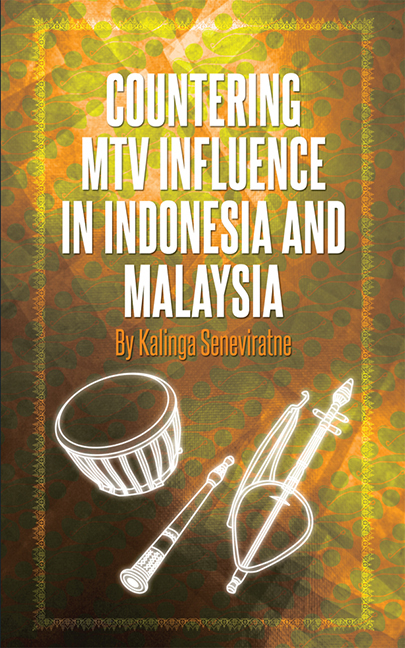Book contents
- Frontmatter
- Contents
- Preface
- 1 Introduction
- 2 Malay Cultural Landscape and Identity: Malaysia and Indonesia
- 3 Music, Islam, and Modern Cultural Identities
- 4 Pop Music, Cultural Imperialism, and Localization
- 5 Case Studies
- 6 Countering Cultural Imperialism: Theoretical Analysis
- References
- Index
- About the Author
6 - Countering Cultural Imperialism: Theoretical Analysis
Published online by Cambridge University Press: 21 October 2015
- Frontmatter
- Contents
- Preface
- 1 Introduction
- 2 Malay Cultural Landscape and Identity: Malaysia and Indonesia
- 3 Music, Islam, and Modern Cultural Identities
- 4 Pop Music, Cultural Imperialism, and Localization
- 5 Case Studies
- 6 Countering Cultural Imperialism: Theoretical Analysis
- References
- Index
- About the Author
Summary
Cultural issues have become increasingly important — both in global as well as local interactions among people — along with increased integration of trade, markets, currencies, transport, and media systems. Although the world appears to be becoming smaller, this is not characterized by equal relations among nations. Today the question of cultural identity plays a very important role in these interactions, with debate surrounding a “clash of civilizations” taking centre stage in global intellectual discourse. It is in this environment that this study was undertaken in the hope of adding further perspectives to ongoing intellectual discourses and debates.
The principal research question that I raised at the outset was: In what ways are members of MTV's youth audiences in Indonesia and Malaysia selective in their adoption and adaptation of MTV-mediated Euro-American entertainment values?
This research has found that there are a number of ways in which this happens and that is related to a number of social, economic, and cultural factors. The main research finding is that this adoption or adaptation is directly related to what they — as a group or as an individual — perceive as their cultural identity and how this music could help to formulate this identity. Often, rather than merely adopting a hitherto foreign culture (as argued by cultural imperialism theorists), this new cultural adaptation is a hybrid culture such as irama Malaysia's blending of traditional Malay musical instruments and Western instruments in their orchestras, dangdut musicians adapting a MTV-inspired style of music presentation on television such as adapting the “postmodernist” style of music video production, or nasyid musician's use of this same music video presentation technique to take an Islamic message to youth audiences. All these modes of contemporary presentation, of what is essentially local music, helps youth audiences to adapt MTV-mediated Euro-American entertainment values, while formulating hybrid cultural identities, which are basically rooted in the soil.
In Chapter 1 I stated that Kaplan (1988, p. 33) claims “MTV is often seen as the flag-bearer of postmodernist cultural expression”.
- Type
- Chapter
- Information
- Countering MTV Influence in Indonesia and Malaysia , pp. 227 - 248Publisher: ISEAS–Yusof Ishak InstitutePrint publication year: 2012



